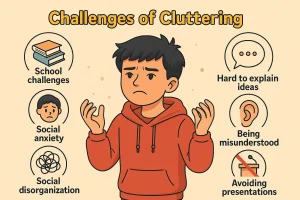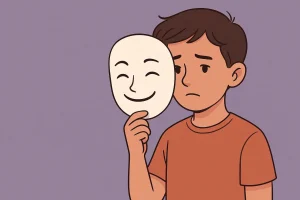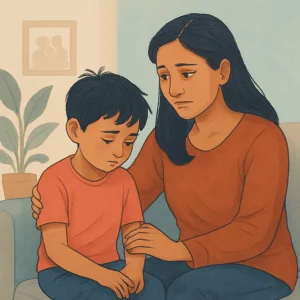Exploring the Depths: Can Love Truly Be Unconditional?
By Prapoorna M
Last Updated: July 30, 2024
Have you ever found yourself daydreaming about a love so deep and pure that it asks for nothing in return? A kind of love that remains steadfast through the highs and lows, a love that doesn’t keep score. If you have, you’re not alone in this universal quest for unconditional love. It’s something many of us yearn for, whether we’re conscious of it or not.
Unconditional love — the term itself evokes a sense of something profound, doesn’t it? It’s the kind of love that’s often celebrated in tales of heroic sacrifices and enduring romances, the kind that parents are said to have for their children. But beyond these idealized images lies a more complex reality. Is unconditional love truly attainable in our day-to-day relationships, or is it a noble yet elusive ideal?
Book Your Relationship Counselling now
Unveiling Unconditional Love
Definition and Overview
When we talk about unconditional love, what exactly are we picturing? Is it the unwavering support of a parent, the deep bond shared with a partner, or perhaps the acceptance and love we give to ourselves? Unconditional love, or what some might call unconditional affection, pure love, or absolute love, manifests in various forms, enriching our lives in multiple contexts.
- Familial Love: Within the family, unconditional love is often seen as the natural affection parents have for their children — a love that’s steadfast, forgiving, and without expectation. It’s a safety net that allows children to explore, make mistakes, and grow, knowing that their value in their loved ones’ eyes remains unchanged.
- Romantic Love: In romantic relationships, unconditional love challenges the notion of love as a transaction. It’s loving someone not for what they do for you or how they make you feel, but for who they are. Despite the ups and downs, this love endures, offering support and affection without strings attached.
- Self-Love: Perhaps the most challenging yet rewarding form is the unconditional love we can offer ourselves. This encompasses self-acceptance, kindness, and understanding towards our own flaws and shortcomings, celebrating our worth without conditions.
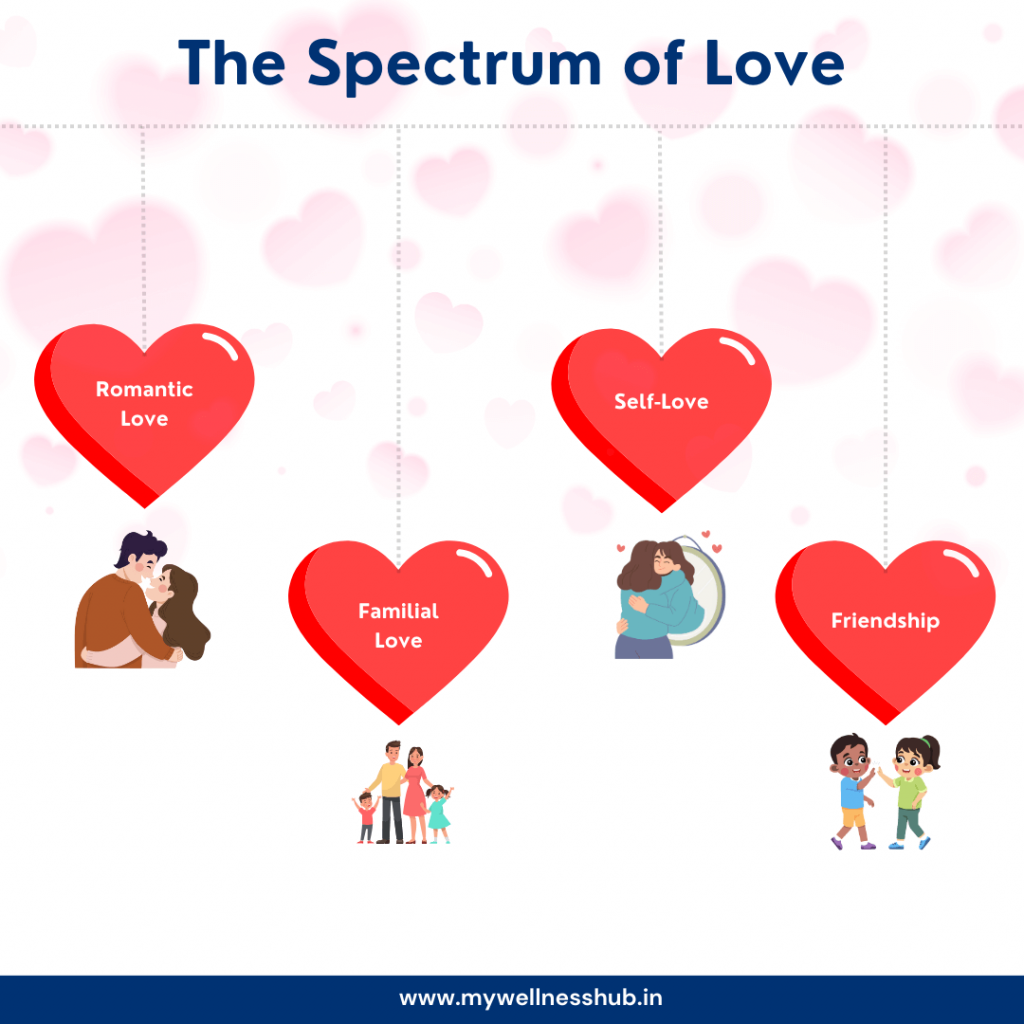
Is It Real?
Now, the million-dollar question: Is unconditional love truly possible, or is it an idealized concept? Let’s delve into the science behind it.
Recent studies shed light on the biology of unconditional love, suggesting it’s not just a figment of our imagination. For instance, research highlights specific brain areas, like the periaqueductal gray (PAG), associated with feelings of unconditional love. This implies that such emotions could be hardwired into our brains, playing a role in our overall well-being and mental health.
The question “Is unconditional love possible in relationships?” often arises. Scientifically speaking, while unconditional love does have its challenges, especially in adult relationships where mutual understanding and reciprocity are crucial, the foundation of such love is very much real. It plays a significant role in our emotional health, influencing how we form attachments and nurture relationships.
Also Read: Effect of love and compassion in our life
The Challenges of Unconditional Love
Expectations vs. Reality
When we hear the phrase “unconditional love,” images of perfect, unwavering affection often fill our minds. But how does this ideal measure up against the complex reality of human emotions and relationships? Can humans experience true unconditional love, or are we chasing a beautifully flawed concept?
The truth is, unconditional love comes with its set of challenges and misunderstandings. Many of us equate this type of love with endless patience, sacrifice, and the absence of disagreements. However, this is a misconception. Unconditional love doesn’t mean accepting poor treatment or neglecting one’s needs in favor of another’s. It’s not about enduring everything without complaint but about loving deeply, despite human flaws and challenges.
Boundaries and Self-Love
A crucial aspect often overlooked in discussions about unconditional love is the importance of boundaries. Healthy boundaries are not barriers to love; instead, they are its very foundation. They allow us to love others and ourselves without losing our sense of individuality. Boundaries help us communicate our needs and limits clearly, fostering respect and understanding in our relationships.
At the core of establishing these boundaries is self-love. Loving ourselves unconditionally is the first step toward being able to offer the same level of acceptance and understanding to others. Self-love teaches us to appreciate our worth, guiding us to seek relationships that honor and reflect this value.
Know more: Why saying No in a Relationship is a Good thing?
Cultivating Unconditional Love
Practical Strategies
Cultivating unconditional love in any relationship, be it with family, friends, a partner, or yourself, is an ongoing process. Here are some actionable strategies to help you nurture this profound form of love:
- Begin with Self-Love: The foundation of unconditional love is self-love. It’s about appreciating and accepting yourself as you are, recognizing your worth, and taking steps to care for your physical, emotional, and mental well-being. Wellness Hub offers resources and guidance on this journey towards self-love, providing you with the tools to embrace your worth fully.
- Practice Understanding and Acceptance: Unconditional love thrives on understanding and acceptance. Try to see things from the other person’s perspective, acknowledging their feelings without immediately seeking to change them. Remember, acceptance does not mean condoning harmful behaviors; it means recognizing and valuing the person behind the actions.
- Communicate Openly and Honestly: Clear communication is the backbone of any strong relationship. Express your feelings, needs, and desires openly, and invite the other person to do the same. This mutual exchange fosters a deep sense of trust and respect, which are essential for unconditional love.
- Seek Support When Needed: There’s no shame in seeking help to navigate the complexities of relationships. Therapy can be a valuable tool in understanding your emotions, behaviors, and patterns. Wellness Hub’s offerings include access to professional support, helping you to explore and strengthen your capacity for unconditional love.
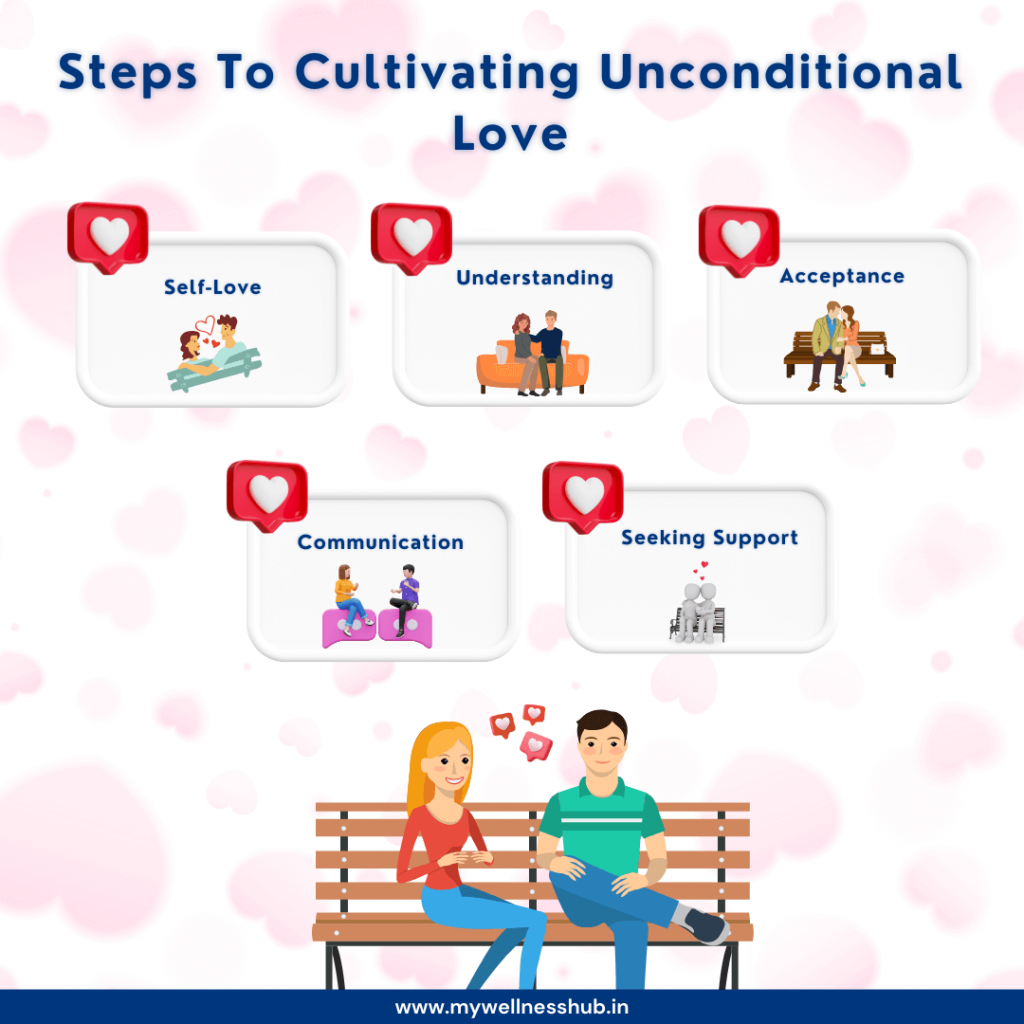
Challenges and Growth
Embracing unconditional love is not without its challenges. It requires patience, effort, and a willingness to confront and grow from difficulties. Here are key areas to focus on:
- Acknowledge and Overcome Challenges: Recognize that challenges are a natural part of any relationship. Use them as opportunities for growth rather than barriers to love. Whether it’s working through misunderstandings, forgiving mistakes, or supporting each other through tough times, facing challenges together strengthens the bond of unconditional love.
- Cultivate Mutual Respect and Communication: Respect and communication are the pillars of lasting relationships. Approach each interaction with kindness and a genuine desire to understand. By prioritizing respectful communication, you encourage a loving environment where unconditional love can flourish.
- Celebrate Growth: Every step towards unconditional love is a step towards personal and relational growth. Celebrate the milestones, no matter how small they may seem. Acknowledging progress encourages continued effort and deepens the bonds of love.
Cultivating unconditional love is a beautiful, transformative journey. It’s about more than just loving another person; it’s about creating a loving relationship with yourself and the world around you. As you navigate this path, remember that Wellness Hub is here to support you with resources, guidance, and professional advice every step of the way.
Benefits of Unconditional Love
| Benefit | Description | Relationship Type |
|---|---|---|
| Enhanced Emotional Well-being | Unconditional love promotes a sense of security and belonging, reducing anxiety and depression. | Self, Romantic, Familial, Friendship |
| Deeper Connections | Creates bonds based on genuine acceptance and understanding, leading to stronger, more meaningful relationships. | Romantic, Familial, Friendship |
| Increased Resilience | Loving without conditions provides a stable base, making individuals more resilient in facing life’s challenges. | Self, Romantic, Familial |
| Improved Self-Esteem | Receiving and practicing unconditional love fosters a positive self-image and confidence in one’s worth. | Self |
| Mutual Growth | Encourages personal development and understanding, facilitating mutual growth in relationships. | Romantic, Familial |
Conclusion
As we wrap up our exploration, we’ve learned that unconditional love is not just an idea from fairy tales. It’s real and it’s powerful, even though it’s not always easy. This kind of love makes us better at caring for others and ourselves. It’s about understanding, accepting, and going through life’s ups and downs together. And even though it can be tough, trying to love this way makes everything better – our lives, our relationships, everything.
At Wellness Hub, we’re here to help you on this journey. Whether you’re learning to love yourself more, improving your relationships, or just curious about unconditional love, we’ve got resources and advice to help you out. Loving without conditions is a journey that can make us and those around us truly happy. So let’s keep learning and growing in love together. Visit us at Wellness Hub for more support and inspiration on your journey.
Frequently Asked Questions:
1. What is unconditional love?
Unconditional love refers to a form of love without conditions or limitations. This means loving someone regardless of their actions or changes in their life. It’s often associated with the kind of affection parents have for their children but can also apply to romantic partnerships, friendships, and self-love.
2. Can unconditional love exist in romantic relationships?
Yes, unconditional love can exist in romantic relationships. It involves loving and accepting your partner for who they are, without expecting anything in return. This form of love emphasizes understanding, acceptance, and support, even through challenging times.
3. How can I practice unconditional love?
Practicing unconditional love involves starting with self-love, setting healthy boundaries, communicating openly and honestly, and showing understanding and acceptance. Wellness Hub offers resources and support to help individuals cultivate these qualities in their relationships.
4. Why are boundaries important in unconditional love?
Boundaries are essential in unconditional love because they help maintain a healthy relationship with yourself and others. They enable you to respect your own needs and limits while also showing love and respect to others. Healthy boundaries foster mutual respect and understanding in any relationship.
5. Can therapy help in understanding and practicing unconditional love?
Yes, therapy can be a valuable resource in understanding and practicing unconditional love. It provides a safe space to explore personal feelings, relationships, and challenges. Therapists can offer guidance and tools to help individuals and couples build stronger, more loving connections.
6. What are the benefits of unconditional love?
Unconditional love offers numerous benefits, including enhanced emotional well-being, deeper connections, and increased resilience in relationships. It encourages personal growth, fosters a supportive and understanding environment, and enriches the lives of both the giver and receiver of love.
7. How does Wellness Hub support individuals on their journey towards unconditional love?
Wellness Hub supports individuals on their journey towards unconditional love by providing resources, guidance, and professional advice. From exploring self-love to enhancing relationship dynamics, Wellness Hub offers tools and support to help individuals embrace and practice unconditional love in all aspects of their lives.
8. How can unconditional love impact mental health?
Unconditional love has a positive impact on mental health by promoting feelings of security, belonging, and self-worth. Experiencing or practicing unconditional love can reduce anxiety, depression, and stress, leading to a more fulfilled and emotionally balanced life.
9. What are some challenges of unconditional love?
One of the challenges of unconditional love is managing expectations. While it embodies love without conditions, it’s essential to maintain healthy boundaries and not tolerate harmful behavior. Another challenge is the constant effort required to practice understanding, patience, and forgiveness, even when it’s difficult.
10. Can unconditional love be learned, or is it an innate ability?
Unconditional love can be both learned and deepened over time. While some aspects of it may come naturally to individuals, such as a parent’s love for their child, understanding and practicing unconditional love in all relationships can be cultivated through self-reflection, personal growth, and conscious effort. Resources and guidance from platforms like Wellness Hub can support and facilitate this learning process.
About the Author:
Prapoorna Mangalampalli
M.Sc., M.A., (Dual Masters in Psychology & English) – Counselor (6+ years of experience)
Prapoorna armed with a passionate dedication fueled by dual Master’s degrees in Psychology and English, Prapoorna sheds light on and elevates human experiences. Over 6+ years of experience fuel her insightful approach to counseling, offering profound empathy and guidance across diverse areas like online, marital, relationship, child, family, and career counseling.
At Wellness Hub, she thrives in a team environment that values innovation, compassion, and achieving results for their clients.
Connect with Prapoorna to learn how she can help you or your loved one find their voice and build a brighter future.
Book your Free Consultation Today
Parent/Caregiver Info:
Client’s Details:
* Error Message




